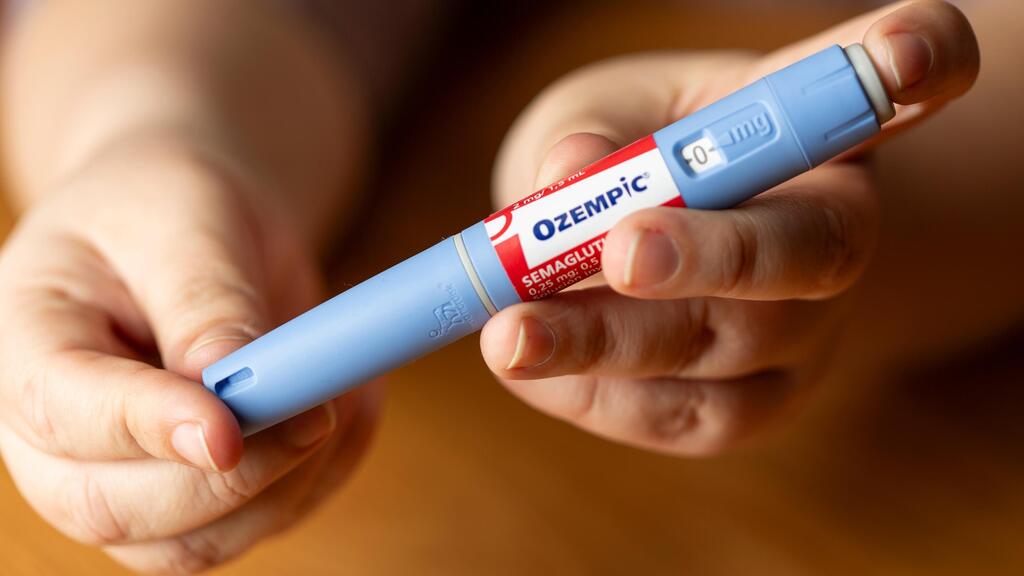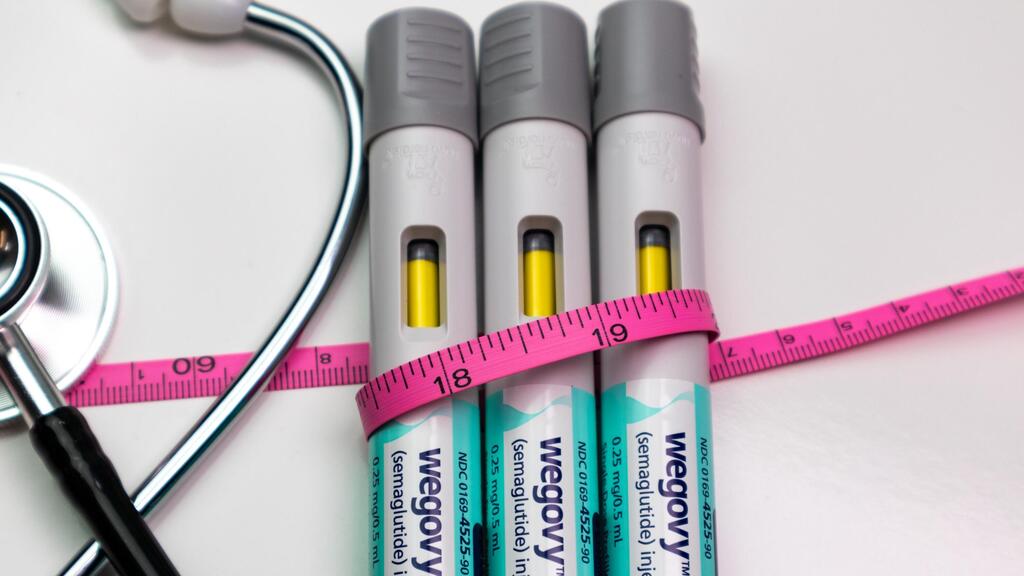Weight-loss injections containing semaglutide, such as Ozempic and Wegovy, reduce the risk of death from obesity, overweight and cardiovascular diseases. However, recent research presented at the European Society of Cardiology Conference in London indicates these injections also slow down aging processes.
Among other findings, the research shows that those who took the medication had a lower overall mortality rate, not just from cardiovascular causes. "Semaglutide has far-reaching benefits beyond what we initially imagined," said Professor Harlan Krumholz of Yale School of Medicine. "It's not just about preventing heart attacks. Improving people's health in this way slows down the aging process."
The studies were derived from the SELECT trial in the United States, which involved more than 17,600 participants aged 45 and older who were overweight or obese and had cardiovascular disease but no diabetes. The participants received Semaglutide or a placebo and were monitored for over three years.
Summary of the latest findings on weight-loss injections:
- Those who took the medication had a lower mortality rate from all causes, not just from cardiovascular diseases.
- The drug consistently reduced the risk of adverse cardiovascular outcomes.
- Participants who took the medication had a lower mortality rate from infections compared to the placebo group.
- The drug improved symptoms of heart failure and reduced inflammation levels in the body, regardless of weight loss.
- Those who used the medication were equally likely to contract COVID-19 but had a lower risk of dying from the disease.
During the study, 833 participants died, with 58% of deaths related to cardiovascular diseases and 42% due to other causes. Infections were the most common cause of death in the latter group. Those who took the active ingredient in the weight-loss injections were significantly less likely to die from infections than those in the placebo group. The medication also consistently reduced the risk of adverse cardiovascular outcomes.
"The reduction in non-cardiovascular mortality, particularly deaths from infections, was surprising," said Professor Benjamin Sirica, a Harvard expert and lead author of one of the studies. "These findings reinforce the fact that overweight and obesity increase the risk of death from various causes, which can be mitigated by treatments like Semaglutide."
Additional studies presented at the conference suggest that the medication could be used to treat a wide range of conditions related to heart failure, arthritis, Alzheimer's, and even cancer. The new data have been published in several medical journals, including the Journal of the American College of Cardiology (JACC), which Krumholz edits. "These breakthrough drugs are set to revolutionize cardiovascular treatment and could dramatically improve cardiovascular health," he said.
The studies found that the medication "consistently reduced the risk" of adverse cardiovascular outcomes, regardless of gender. It also improved symptoms of heart failure and reduced inflammation levels in the body, whether or not participants lost weight.
Dramatic reduction in COVID-19 mortality risk
Another surprising finding from the studies presented was the impact on COVID-19 patients. People using the weight-loss injections contracted COVID and fell ill at the same rate but were less likely to die from the disease. Among those who took the medication, 2.6% died, compared to 3.1% in the placebo group. Out of the 17,694 study participants, funded by Danish manufacturer Novo Nordisk, 4,258 contracted the coronavirus. Half of them used the Wegovy weight-loss injection, and the other half took a placebo. Among the infected, 184 participants died – 106 in the placebo group and 78 who used Wegovy. These findings were published over the weekend in the Journal of the American College of Cardiology.
Semaglutide is found in popular medications from Novo Nordisk, such as Wegovy for obesity and Ozempic for diabetes. Both medications are administered via injection and mimic the GLP-1 hormone, making people feel fuller and less hungry.
Experts have previously warned that these medications are not a magic solution or a substitute for healthy eating and exercise and should only be offered under medical supervision. Like any drug, there may be side effects and risks, the most common being nausea, indigestion, bloating and gas.
'An important and effective treatment for heart disease'
Professor Avishay Grupper, head of the heart failure unit at Shamir Medical Center and chairman of the heart failure section of the Israel Cardiology Association, who attended the European Society of Cardiology conference in London, said: "One of the prominent topics at this year's conference is the connection between obesity and cardiovascular diseases in general and heart failure with preserved ejection fraction (HFpEF) in particular. Last year, two studies were published showing the efficacy of Wegovy in patients with obesity and heart failure."
"This year, new data on the effect of the treatment between men and women in different patient groups were presented, proving that the injection is effective across all patient groups examined. Additionally, a study was published showing the positive impact of Wegovy treatment on heart structure in people with obesity and heart failure. These results strengthen the hypothesis that the positive effect of Wegovy treatment is not solely related to weight loss and highlight additional physiological effects on the heart muscle. Other studies have shown the impact of Ozempic treatment on chronic kidney disease in diabetic patients. The injection protected the kidneys and prevented cardiovascular complications, heart failure and death from heart disease and all causes."
 Professor Avishay Grupper
Professor Avishay GrupperAccording to Gruper, "These new results deepen our understanding of the different mechanisms of the drug while highlighting the gap that still needs to be filled. The research positions treatment with Semaglutide-containing injections like Ozempic (for diabetes) or Wegovy (for obesity) not only as a preventive measure but also as an important and effective treatment for various heart diseases and kidney diseases."
The latest research findings indicate that the medication may have far-reaching effects beyond weight loss and could change the approach to treating a wide range of aging-related diseases. As research continues, we may see new and surprising uses for these drugs in the future for treating other conditions.
It should be noted that the highly sought-after weight-loss injection market in Israel will soon see the addition of the drug Tirzepatide (Mounjaro), which recently demonstrated a remarkable 94% reduction in the risk of progression from prediabetes to type 2 diabetes in adults, according to a recent announcement from pharmaceutical company Eli Lilly. The injection also led to a dramatic average weight loss of 22.9%.



